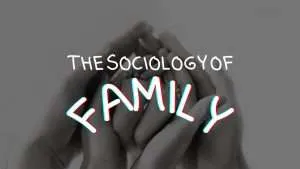For most Americans, the practice of ‘labor day’ is a key marker of time passing. Not only does it offer an ‘exit point’ of sorts for the summer, but it is a chance for barbecues, for swimming and for traveling. But what few people tend to realize is what the holiday is actually meant to celebrate. Providing historical context, can help us understand a sociology of Labor Day.
Labor Day came to exist in the 1880s when local union organizers in New York organized a day to honor ‘those who from rude nature have delved and carved all the grandeur we behold.’ It originally was celebrated as a local holiday in New York, only to spread to other states in consecutive years. By 1894, the first Monday of September was officiated as the official ‘Labor Day’ by President Grover Cleveland.
Sociology of Labor Day: The History
What makes Labor Day stand out as a holiday is what it reflects about the work conditions that many Americans had to deal with. According to some historians, it is an alternative to May Day when it comes to questions of labor and work. May Day started out as a spring festival based on the festival of Flora, a celebration of flowers practiced by the Roman period. For most countries, May Day still stands as a wonderful chance to celebrate spring and gather. But in the last 130 years, it has also evolved into a day of labor protest.
If you return to the 1880s, you would find the United States in the midst of a massive industrial boom. Machines were making the creation of products at reduced prices easier and easier. It also meant that many of the craftsmen to work for longer hours for less pay. This is all going on decades after Karl Marx had written the Communist Manifesto, as the conditions he found himself concerned with had only grown in expansion since.
Origins in Chicago
One of the central locations for this tension was Chicago. The city was becoming a major hub of industrialization and innovation. As more and more factories filled the city, more workers were needed. And who could be more reliable than the immigrant? Germans, Irish and Scandinavians would streamline into Chicago with the hope of finding employment. But in doing so, they found work conditions that were difficult to tolerate.
All of this tension regarding worker’s wages and treatment built up for years until you reach May 4th, 1886. A worker’s union protest had gathered in Haymarket Square to protest the killing and wounding of workers by Chicago police the day prior. Things quickly swelled to what some sources estimate to be 2,000 protesters. As the police came in to disperse the crowd, an unknown individual threw an explosive at the approaching officers. And what ensued was sheer chaos. Seven officers and one civilian died during the riot, while countless others were injured.
The events lead to a wave of anti-labor motions as both immigrants and labor organizers were gathered in Chicago on the basis of them being ‘anarchists’. Eight men were found guilty for inciting the riot, although the trial was considered ‘sensational’, in part due to the unreliable nature of the jury and a lack of evidence.
Sociology of Labor Day: Origins of the Holiday
The events eventually sparked the motion by the Marxist International Socialist Congress as a day for pushing back against the labor conditions. The holiday is still celebrated across the world, but is not as recognized in the States as a federal holiday. Rather, the federal government would file their own ‘day of labor’ for the beginning of September, separate from the international movement. Historian Jonathan Cutler notes that doing this has sort of redefined the purpose of Labor Day: “May Day has always been linked to the demand for less work and more pay; Labor Day celebrates the “dignity” of work.”
The contrast offered by Cutler is indicative of In the United States and its relationship with labor as a whole. US employees work more hours than any other industrialized country in the world. The wages that they get for said hours have far less purchase power than they did 40 years ago. The groups that previously had the ability to influence the conditions of workers have diminished in their ability to spend and influence, leaving many in a place where the worker has little input on the conditions that they work under.
There are many reasons to celebrate on Labor Day. Work has played an integral part into building the United States. But do not forget the plight of the worker as well.







